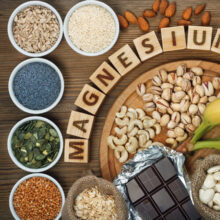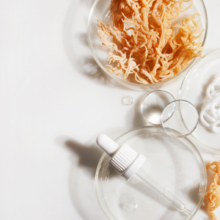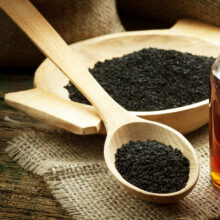Helpful or Harmful? The Truth About Soy
- Published: Saturday, April 18th 2015
- in Nutrition
The health claims for soy are all over the map. It is supposed to be good for preventing cancer, but might also contribute to cancer. We hear that it’s good for your heart, but bad for testosterone in men. You need a ton of it to get any effect, but high dose supplements are even worse!
Let’s clear the air a bit. First of all, soy does have the highest concentration of isoflavones (a kind of estrogen) in any food. And this one fact has been taken to mean that this added estrogen could substitute for missing estrogen. Hot flashes are a perfect example. These are associated with a natural reduction in estrogen levels. Simplistically, it might make sense that soy’s estrogen would reduce the severity and frequency of hot flash occurrence, if one estrogen substituted for another.
However, this just turned out not to be the case. This review looked at all the studies between 1966 and 2004 that compared soy isoflavone consumption with hot flash symptoms. This comprehensive review showed exactly zero relationship between them. Based on a separate review of available data, the American Heart Association concluded that soy isoflavones just don’t have an important impact on menopausal symptoms.
The same non-result was found with breast cancer. Some forms of breast cancer are stimulated by the presence of estrogen. That’s why these women are commonly given estrogen blockers such as Tamoxifen, following breast cancer surgery. This is also why soy estrogen was thought to put a woman at greater risk for breast cancer.
However, controlled clinical trials reveal that the actual outcome of soy consumption is all over the map. Some studies show no impact at all, while others show that it actually reduces breast cancer risk. That is likely because these soy isoflavones mimic estrogen in some tissues and don’t in others.
As far as men go, it was thought that the phytoestrogens would lower a man’s testosterone levels, but this turns out not to be the case either. The same level of ambiguity exists for claims that soy is good for your heart. At first, it was thought that soy helped reduce the bad LDL cholesterol so much that its consumption could reduce the risk of heart disease. Unfortunately, a later meta-analysis showed that you would have to eat 1.5 pounds of tofu or eight 8-ounce glasses of soy milk every day to lower your LDL by only 3 percent.
But don’t think you can just take larger doses of soy from supplements, because these can introduce health problems such as increasing the growth of tumors. By contrast, those who eat one to two servings of soy daily were found to have a reduced risk of being diagnosed with breast cancer.
So the bottom line is that soy (in the form of beans) is not cure all but its phytoestrogens are not harming us either. And by the way, like other beans these are super rich in fiber, B vitamins, minerals, iron, protein, and even omega 3s. These make the soy bean something you could healthfully enjoy every day.
In our newest series “The Truth About…” we’ll be unveiling some facts about some controversial ingredients in food and product! Have an ingredient you’re unsure about? Share it in the comments below!




